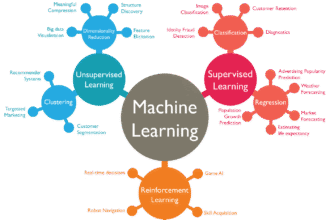Introduction: A Paradigm Shift in British Corporate Development
The landscape of corporate training in the United Kingdom has undergone a seismic transformation. Gone are the days of mandatory, day-long seminars in bland hotel conference rooms. The digital revolution, accelerated by global shifts in work culture, has firmly established online learning as the cornerstone of modern corporate L&D (Learning and Development). But this is more than a mere change of venue; it’s a fundamental reimagining of how knowledge is imparted, skills are honed, and businesses grow.
For HR directors, L&D managers, and C-suite executives across the UK, the question is no longer if they should adopt digital training, but how to do it most effectively. The evidence is overwhelming: a strategically implemented online learning platform is not just a convenient alternative—it’s a powerful strategic asset. In this deep dive, we will dissect the multifaceted benefits of online learning for corporate training programs, providing live insights, data, and actionable strategies to help your organisation thrive.
Live Insight (Daily Update): As of this week, a report from the UK’s Chartered Institute of Personnel and Development (CIPD) highlights that over 78% of UK organisations now use some form of digital or blended learning in their training programmes, a 15% increase from pre-2020 figures. The trend is not just persisting; it’s accelerating.
The Compelling Case: Quantifying the Benefits of Online Learning for UK Businesses

Why are British companies, from London’s financial powerhouses to Manchester’s thriving tech startups, pouring resources into online learning courses? The advantages extend far beyond simple cost-saving. Let’s break down the core benefits.
1. Significant Cost Reduction and Enhanced ROI
This is often the most immediate and appealing benefit. Traditional training involves immense hidden costs: venue hire, instructor fees, travel and accommodation for employees, printed materials, and the significant cost of employee downtime.
- Elimination of Logistical Overheads: With online learning programs, the need for physical space and associated logistics vanishes.
- Scalability at Minimal Cost: Training 10 employees or 10,000 on an online learning platform incurs a marginally different cost, making it incredibly efficient for growing businesses.
- Measurable ROI: Platforms with built-in analytics allow you to track completion rates, assessment scores, and skill application directly to performance metrics. You’re not just spending on training; you’re investing in measurable improvement.
Source: A 2023 study by PwC UK found that companies switching to digital learning models reported an average of 45% reduction in training costs while achieving a 15% higher retention of learned skills.
2. Unparalleled Flexibility and Accessibility
The modern UK workforce is hybrid, remote, and flexible. A one-size-fits-all training schedule is obsolete. Online education learning caters to this new reality.
- Learn Anywhere, Anytime: Employees can access my online learning portal from their home office in Edinburgh, a coffee shop in Bristol, or their smartphone during a commute. This “on-demand” model respects individual work styles and personal commitments.
- Self-Paced Progression: Unlike rigid classroom schedules, online learning courses allow individuals to pause, rewind, and revisit content, ensuring comprehension. A fast learner can race ahead, while another can take the time they need to master a complex topic like learning Python or understanding what is machine learning.
3. Consistency and Standardisation of Training
Ensuring every employee receives the same quality and message from training is a monumental challenge with in-person sessions. Different trainers on different days can lead to wildly different experiences.
- A Single Source of Truth: An online learning system delivers a standardized core curriculum to every single employee. This is critical for compliance training, onboarding, and disseminating new company policies.
- Guaranteed Quality: The content you create or curate is the content that gets delivered, every time, without deviation.
4. Enhanced Engagement and Knowledge Retention
The stereotype of dry, click-through online learning modules is outdated. Modern platforms leverage microlearning, gamification, and interactive content to boost engagement dramatically.
- Microlearning Modules: Bite-sized lessons that fit into a busy schedule are proven to improve focus and knowledge retention compared to hour-long lectures.
- Gamification: Elements like points, badges, and leaderboards turn learning into a engaging experience. Platforms like Kahoot are pioneers in this space.
- Multimedia Content: Video, audio, interactive simulations, and quizzes cater to different learning styles, making the process more dynamic than a static PowerPoint presentation.
5. Scalability and Rapid Deployment
When your company launches a new product, undergoes a merger, or needs to roll out urgent compliance updates, speed is of the essence.
- Instant Global Rollout: A new training module can be deployed to your entire workforce across the UK—and globally—simultaneously. There’s no need to schedule sessions or book flights.
- Future-Proofing: As your company grows, your online learning platform grows with it, effortlessly onboarding new hires from day one.
6. Robust Tracking, Analytics, and Data-Driven Decisions
This is arguably the most transformative benefit. How do you know if your training is working? With traditional methods, it’s often guesswork. With online learning, it’s data science.
- Real-Time Dashboards: Monitor progress, completion rates, and assessment scores in real-time.
- Identify Skill Gaps: Analytics can pinpoint areas where individuals or entire teams are struggling, allowing for targeted intervention.
- Demonstrate Value to Stakeholders: Concrete data allows L&D leaders to prove the value of their initiatives to senior management, securing future budget and buy-in.
Live Insight (Daily Update): Platforms like Coursera and edX now offer advanced analytics suites that track not just course completion, but “skill proficiency” levels, giving UK businesses an unprecedented view of their workforce’s capabilities.
The UK Context: Why Online Learning is Uniquely Positioned for Success
The UK’s corporate environment presents a perfect storm of factors that make the adoption of online learning not just smart, but essential.
- A Hybrid Work Model is the New Norm: The UK has fully embraced hybrid work. The Office for National Statistics (ONS) reports that over 40% of UK workers now operate in a hybrid model. Online learning is the only training methodology built for this reality.
- The Digital Skills Gap: The UK faces a significant shortage of digital skills. Upskilling in areas like data analytics, cybersecurity, and software development (e.g., learning Python online) is a national priority. Online learning platforms like LinkedIn Learning, Codecademy, and Udemy provide immediate, scalable access to this crucial training.
- Brexit and Regulatory Changes: The post-Brexit regulatory environment is fluid. Companies need agile training solutions to keep employees updated on changing compliance requirements in fields like finance (where CPA online learning and CPA Australia models are influential) and data law.
Choosing the Right Platform: A UK Manager’s Guide
With hundreds of options, selecting the right online learning platform is crucial. Here’s a breakdown of types and leading examples.
Types of Platforms:
- Massive Open Online Course (MOOC) Providers: Ideal for sourcing high-quality, third-party content on a vast range of subjects.
- Coursera: Partners with top universities and companies. Excellent for professional certificates and deep specializations.
- edX: Similar model, founded by Harvard and MIT. Strong in university-level courses.
- Alison Online Learning: Focuses on free online courses with certificates, great for foundational skills.
- Specialist Skill Platforms: Focused on specific domains.
- LinkedIn Learning: Excellent for business, creative, and soft-skills courses with deep integration into the professional network.
- Codecademy: The go-to for interactive coding education, from web development to data science.
- IXL Learning / Doodle Learning: While often used in schools, their adaptive learning technology is being adopted for foundational skills training in corporate settings.
- Corporate-Focused Learning Management Systems (LMS): Platforms designed to host, deliver, and track your proprietary company training.
- Docebo, Cornerstone OnDemand, LearnUpon: These powerful systems allow you to build your own content, manage user groups, and generate detailed reports.
Source: Gartner’s Magic Quadrant for Corporate Learning Systems provides an annual, authoritative analysis of the top vendor platforms.
Implementing a Successful Online Learning Strategy
Buying a platform is just step one. Implementation is key to achieving the benefits of online learning.
- Align with Business Goals: Don’t train for training’s sake. Start with a business problem: “We need to improve our digital marketing ROI” or “We have a security compliance gap.”
- Curate, Don’t Just Create: You don’t need to build every course from scratch. Curate the best free online courses and premium content from platforms like Coursera and LinkedIn Learning to supplement your own internal training.
- Foster a Culture of Learning: Encourage managers to champion learning. Dedicate time for it. Recognise and reward employees who actively use the online learning hub.
- Promote Social and Collaborative Learning: Use features like discussion forums, group projects, and peer-to-peer coaching to combat the potential isolation of online distance learning.
- Iterate and Improve: Use your platform’s analytics to see what’s working and what isn’t. Continuously update and improve your content library.
Addressing the Challenges: The Potential Disadvantages of Online Learning
A balanced view is critical. Acknowledging the disadvantages of online learning allows you to proactively mitigate them.
- Lack of Social Interaction: Mitigate this by incorporating live virtual instructor-led sessions (VILT) and collaborative tools into your blended learning strategy.
- Technology Barriers: Ensure the platform is user-friendly and provide robust IT support. Not everyone is a digital native.
- Self-Motivation Required: Some employees may struggle with the self-discipline required. This is where manager support and a strong learning culture are vital.
The Future is Now: AI, Personalization, and Immersive Learning
The evolution of online learning is rapid. The future lies in hyper-personalization.
- AI-Powered Pathways: Artificial Intelligence will curate individual learning paths for each employee, suggesting courses like learning Spanish online for a sales rep dealing with Latin American clients or an AI course online free for a curious marketing exec.
- Adaptive Learning: Technology that adjusts the difficulty and presentation of content in real-time based on learner performance, much like IXL does for maths.
- Virtual and Augmented Reality: For high-stakes training in fields like healthcare, engineering, and safety, VR and AR will provide realistic, risk-free simulation environments.
Conclusion: Your Competitive Advantage Awaits
For UK businesses, the debate is over. The strategic integration of a sophisticated online learning platform into your corporate training program is a non-negotiable element of modern business strategy. The benefits of online learning—from drastic cost savings and unparalleled flexibility to data-driven insights and enhanced engagement—deliver a tangible competitive advantage.
It’s time to move beyond seeing training as an expense and start viewing it as a dynamic, scalable, and intelligent engine for growth. The tools, from free online learning platforms to enterprise-grade LMS, are at your fingertips. The question is, how will you use them to build the workforce of tomorrow, today?
Call to Action: Ready to transform your corporate training? Begin by auditing your current L&D strategy. Identify one key area where a pilot online learning program could make an immediate impact. The journey toward a more skilled, agile, and future-proof organisation starts with a single step—or a single click.












